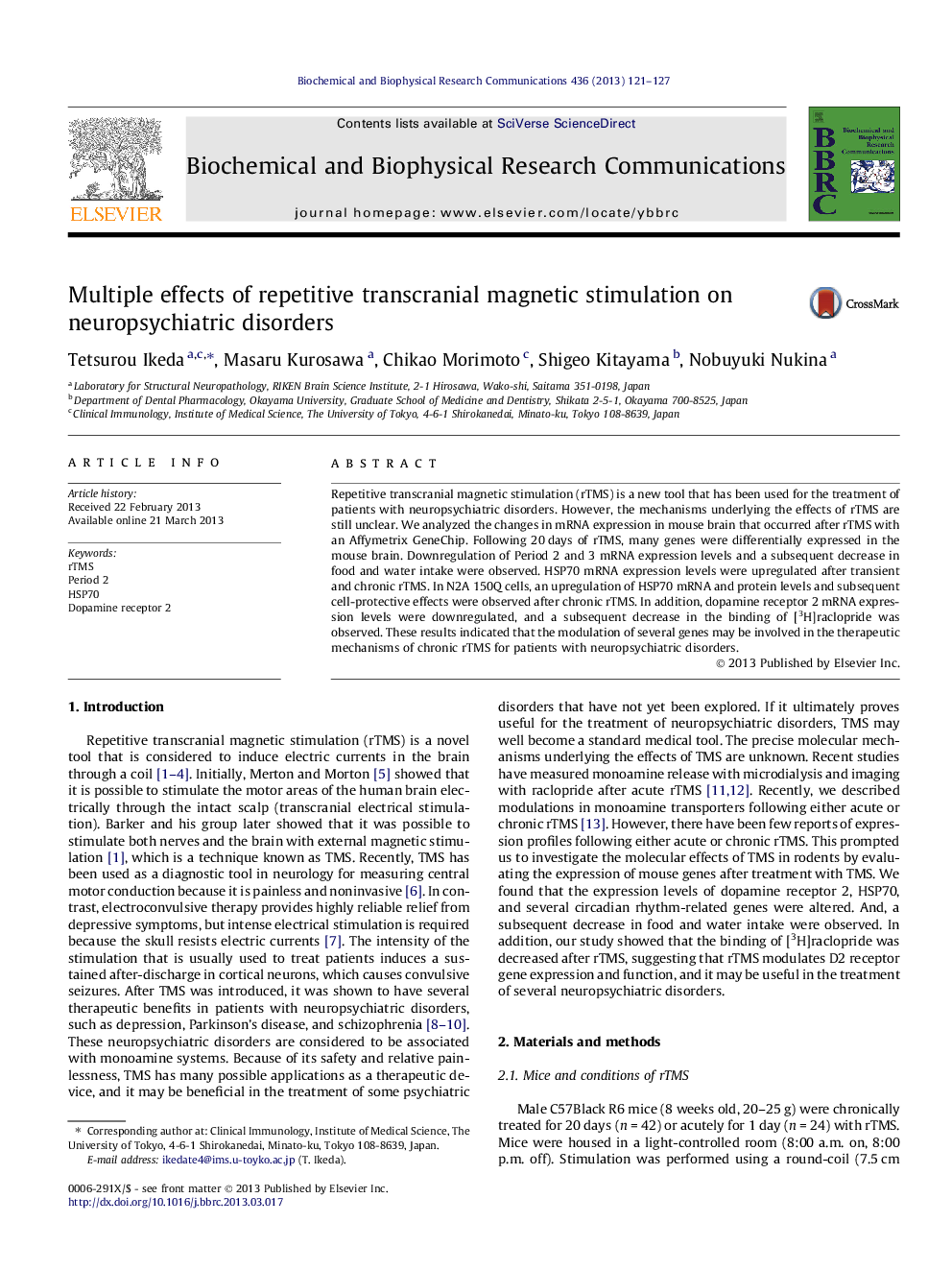| Article ID | Journal | Published Year | Pages | File Type |
|---|---|---|---|---|
| 10759186 | Biochemical and Biophysical Research Communications | 2013 | 7 Pages |
Abstract
Repetitive transcranial magnetic stimulation (rTMS) is a new tool that has been used for the treatment of patients with neuropsychiatric disorders. However, the mechanisms underlying the effects of rTMS are still unclear. We analyzed the changes in mRNA expression in mouse brain that occurred after rTMS with an Affymetrix GeneChip. Following 20Â days of rTMS, many genes were differentially expressed in the mouse brain. Downregulation of Period 2 and 3 mRNA expression levels and a subsequent decrease in food and water intake were observed. HSP70 mRNA expression levels were upregulated after transient and chronic rTMS. In N2A 150Q cells, an upregulation of HSP70 mRNA and protein levels and subsequent cell-protective effects were observed after chronic rTMS. In addition, dopamine receptor 2 mRNA expression levels were downregulated, and a subsequent decrease in the binding of [3H]raclopride was observed. These results indicated that the modulation of several genes may be involved in the therapeutic mechanisms of chronic rTMS for patients with neuropsychiatric disorders.
Keywords
Related Topics
Life Sciences
Biochemistry, Genetics and Molecular Biology
Biochemistry
Authors
Tetsurou Ikeda, Masaru Kurosawa, Chikao Morimoto, Shigeo Kitayama, Nobuyuki Nukina,
